Strictly Personal
The international politics of observing elections, By Owei Lakemfa
Published
1 year agoon
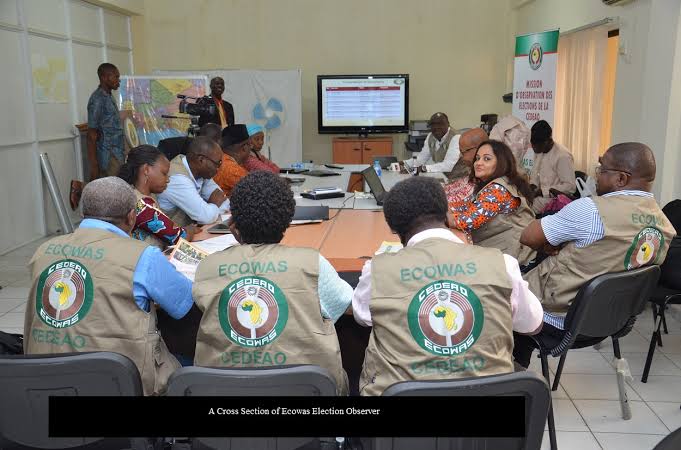
The 2023 Nigeria presidential and National Assembly elections were contentious and controversial, with some calling for their outright cancellation. While we all have our views, none of which should be discountenanced, I find it curious that some quote the reports of international election observers, as if they contained the gospel truth. As one who has officially and unofficially observed elections in Africa, Europe and Latin America, I suggest to those relying on such reports to do so with the consciousness that observing elections is not value-free.
International election monitors or observers are not tourists interested in wildlife, sunbathing or visting historic or iconic sites; they are politically conscious people on a mission. They are educated people who can observe the same events but have different interpretations and conclusions, depending on their motives.
Sometimes, as in the Nigerian election, some observers behave like active actors who feel entitled to magisterial declarations and actions. For instance, the European Union Election Observation Mission, which had 110 observers from 25 member states, Canada, Norway and Switzerland, suggestively, titled its preliminary report: “Elections held on schedule, but lack of transparency and operational failures reduced trust in the process and challenged the right to vote.” It virtually wrote off the elections for an alleged “lack of transparency.”
Internationally, national electoral bodies announce election results, which are the only results permissible, unless otherwise decided by the courts. In emphasising this a day after the elections, the Chairman of the Independent National Electoral Commission (INEC), Professor Mahmoud Yakubu, said on television that all organisations should “draw their figures (election results) only from the official results released by the commission as the only body constitutionally responsible for releasing official election figures.”
But the EU would not obey such a basic rule. One day after Yakubu’s statement, and two days before INEC’s official results were announced, the EU, in its public report, announced that: “Yiaga (a local observer group) is conducting a parallel vote tabulation for the presidential election.” In line with this announcement, YIAGA announced its own presidential election results different from those of INEC. After INEC announced that the All Progressives Congress (APC) candidate, Bola Ahmed Tinubu scored 36.6% or 8.79 million votes; the Peoples Democratic Party (PDP) candidate, Atiku Abubakar scored 29.1% or 6.98 million votes, and the Labour Party (LP) candidate, Peter Obi scored 25.4% or 6.1 million votes, YIAGA cheekily announced its own results. It declared that: “Yiaga Africa’s statistical analysis shows that the All Progressives Congress, APC, should receive between 34.4 per cent and 37.4 per cent of the vote, Labour Party, LP should receive between 24.2 per cent and 28.4 per cent of the votes, the New Nigeria People’s Party, NNPP, should receive between 4.6 per cent and 6.4 per cent of the vote, Peoples Democratic Party, PDP, should receive between 28.3 per cent and 31.1 per cent of the vote, while no other political party should receive more than 0.3 per cent of the vote.”
The Commonwealth Observer Group led by former South African President Thabo Mbeki, followed a different approach from the EU. It said: “Notwithstanding the shortcomings identified in these elections, Nigerians were largely accorded the right to vote. …We call on all those with grievances to address disputes through prescribed legal channels.”
The AU report reflected what we witnessed in the field. So also did that of the Nigerian Electoral Mission headed by former Head of the Interim Government, Chief Ernest Shonekan. But the Commonwealth Observer Mission, headed by former Military Head of State, retired General Abdulsalam Abubakar, issued a contrary report. It was one that must have been written before the elections, in accordance with the Commonwealth decision to use it as an excuse to expel Zimbabwe from its membership.
In contrast to the Commonwealth, the joint report of the American International Republican Institute (IRI) and the National Democratic Institute (NDI) contained blistering attacks: “the elections still fell well short of Nigerian citizens’ legitimate and reasonable expectations. Failures of logistics, challenges with voter registration and voter card distribution, inadequate communication by INEC, lack of transparency in the publication of election data, and unchecked political violence before and during the elections overshadowed incremental administrative gains achieved in the pre-election period, and impeded a substantial number of citizens from participating in voting.”
The joint report of the AU and the Economic Community of West African States (ECOWAS) is a contrast to that of the Americans. They called on: “political parties and their candidates to settle electoral disputes through peaceful means and dialogue, in accordance with the law.”
These reports remind me of the 2002 Presidential Elections in Zimbabwe, in which I was part of the AU Election Observer Team. Daily, we went out with other international observers and in the evenings, compared notes. We all had the same reports, which showed that there was no voter intimidation, no violence, the elections were smooth and reflected the will of the Zimbabwean people. Where the opposition felt that there were some voters left out, it went to court in the evening of the elections and a judge added one extra day of voting, with which the electoral body complied.
The AU report reflected what we witnessed in the field. So also did that of the Nigerian Electoral Mission headed by former Head of the Interim Government, Chief Ernest Shonekan. But the Commonwealth Observer Mission, headed by former Military Head of State, retired General Abdulsalam Abubakar, issued a contrary report. It was one that must have been written before the elections, in accordance with the Commonwealth decision to use it as an excuse to expel Zimbabwe from its membership. Reading this body language, Zimbabwe under President Robert Mugabe decided to leave the Commonwealth.
Generally, there are security implications in observing elections because accredited persons would have access to voting areas and, possibly, collation centres where a people would be defining or determining the future of their country.
So, should countries like Nigeria simply stamp the passports of election observers or would it be democratic to screen them and decide which should be given visas and whose visa applications should be rejected?
We should ask ourselves why countries or organisations would decide to invest in our elections. Perhaps the AU coming to observe Nigerian elections would be like some peer review mechanism. It can be understandable for the ECOWAS to send an observer team as solidarity with the Nigerian state. But why would numerous observers travel from across the world to observe Nigeria elections – as guardians of democracy?
We should ask ourselves why countries or organisations would decide to invest in our elections. Perhaps the AU coming to observe Nigerian elections would be like some peer review mechanism. It can be understandable for the ECOWAS to send an observer team as solidarity with the Nigerian state. But why would numerous observers travel from across the world to observe Nigeria elections – as guardians of democracy?
Why would they spend huge sums of money funding multiple local groups to observe the same elections they are coming to observe? It cannot be that they do not trust the locals they are funding.
We should also be curious why countries like China and India, who make up 36% of world population are not so active in observing elections, at least in Africa.
International observers come, make their observation and fly out, leaving the locals to their fate; many are birds of passage who perch for some days and fly away to other areas of interest.
Owei Lakemfa, a former secretary general of African workers, is a human rights activist, journalist and author.
You may like
-


Nigeria’s NGX Group enters into strategic investment partnership with Ethiopian Securities Exchange
-


Nigeria: 118 prison inmates escape after rainstorm destroys facility
-


Nigeria’s antigraft agency EFCC may try 300 forex racketeers
-


Nigerian govt shuts Chinese supermarket over ‘no-Nigerian shopper’ allegation
-
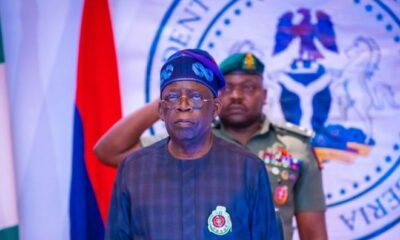

Nigeria: President Tinubu identifies illegal mining as source of terrorism financing
-


Nigeria wants $2.25 billion World Bank loan
Strictly Personal
Air Peace, capitalism and national interest, By Dakuku Peterside
Published
1 week agoon
April 16, 2024
Nigerian corporate influence and that of the West continue to collide. The rationale is straightforward: whereas corporate activity in Europe and America is part of their larger local and foreign policy engagement, privately owned enterprises in Nigeria or commercial interests are not part of Nigeria’s foreign policy ecosystem, neither is there a strong culture of government support for privately owned enterprises’ expansion locally and internationally.
The relationship between Nigerian businesses and foreign policy is important to the national interest. When backing domestic Nigerian companies to compete on a worldwide scale, the government should see it as a lever to drive foreign policy, and national strategic interest, promote trade, enhance national security considerations, and minimize distortion in the domestic market as the foreign airlines were doing, boost GDP, create employment opportunities, and optimize corporate returns for the firms.
Admitted nations do not always interfere directly in their companies’ business and commercial dealings, and there are always exceptions. I can cite two areas of exception: military sales by companies because of their strategic implications and are, therefore, part of foreign and diplomatic policy and processes. The second is where the products or routes of a company have implications for foreign policy. Air Peace falls into the second category in the Lagos – London route.
Two events demonstrate an emerging trend that, if not checked, will disincentivize Nigerian firms from competing in the global marketplace. There are other notable examples, but I am using these two examples because they are very recent and ongoing, and they are typological representations of the need for Nigerian government backing and support for local companies that are playing in a very competitive international market dominated by big foreign companies whose governments are using all forms of foreign policies and diplomacy to support and sustain.
The first is Air Peace. It is the only Nigerian-owned aviation company playing globally and checkmating the dominance of foreign airlines. The most recent advance is the commencement of flights on the Lagos – London route. In Nigeria, foreign airlines are well-established and accustomed to a lack of rivalry, yet a free-market economy depends on the existence of competition. Nigeria has significantly larger airline profits per passenger than other comparable African nations. Insufficient competition has resulted in high ticket costs and poor service quality. It is precisely this jinx that Air Peace is attempting to break.
On March 30, 2024, Air Peace reciprocated the lopsided Bilateral Air Service Agreement, BASA, between Nigeria and the United Kingdom when the local airline began direct flight operations from Lagos to Gatwick Airport in London. This elicited several reactions from foreign airlines backed by their various sovereigns because of their strategic interest. A critical response is the commencement of a price war. Before the Air Peace entry, the price of international flight tickets on the Lagos-London route had soared to as much as N3.5 million for the economy ticket. However, after Air Peace introduced a return economy class ticket priced at N1.2 million, foreign carriers like British Airways, Virgin Atlantic, and Qatar Airways reduced their fares significantly to remain competitive.
In a price war, there is little the government can do. In an open-market competitive situation such as this, our government must not act in a manner that suggests it is antagonistic to foreign players and competitors. There must be an appearance of a level playing field. However, government owes Air Peace protection against foreign competitors backed by their home governments. This is in the overall interest of the Nigerian consumer of goods and services. Competition history in the airspace works where the Consumer Protection Authority in the host country is active. This is almost absent in Nigeria and it is a reason why foreign airlines have been arbitrary in pricing their tickets. Nigerian consumers are often at the mercy of these foreign firms who lack any vista of patriotism and are more inclined to protect the national interest of their governments and countries.
It would not be too much to expect Nigerian companies playing globally to benefit from the protection of the Nigerian government to limit influence peddling by foreign-owned companies. The success of Air Peace should enable a more competitive and sustainable market, allowing domestic players to grow their network and propel Nigeria to the forefront of international aviation.
The second is Proforce, a Nigerian-owned military hardware manufacturing firm active in Rwanda, Chad, Mali, Ghana, Niger, Burkina Faso, and South Sudan. Despite the growing capacity of Proforce in military hardware manufacturing, Nigeria entered two lopsided arrangements with two UAE firms to supply military equipment worth billions of dollars , respectively. Both deals are backed by the UAE government but executed by UAE firms.
These deals on a more extensive web are not unconnected with UAE’s national strategic interest. In pursuit of its strategic national interest, India is pushing Indian firms to supply military equipment to Nigeria. The Nigerian defence equipment market has seen weaker indigenous competitors driven out due to the combination of local manufacturers’ lack of competitive capacity and government patronage of Asian, European, and US firms in the defence equipment manufacturing sector. This is a misnomer and needs to be corrected.
Not only should our government be the primary customer of this firm if its products meet international standards, but it should also support and protect it from the harsh competitive realities of a challenging but strategic market directly linked to our national military procurement ecosystem. The ability to produce military hardware locally is significant to our defence strategy.
This firm and similar companies playing in this strategic defence area must be considered strategic and have a considerable place in Nigeria’s foreign policy calculations. Protecting Nigeria’s interests is the primary reason for our engagement in global diplomacy. The government must deliberately balance national interest with capacity and competence in military hardware purchases. It will not be too much to ask these foreign firms to partner with local companies so we can embed the technology transfer advantages.
Our government must create an environment that enables our local companies to compete globally and ply their trades in various countries. It should be part of the government’s overall economic, strategic growth agenda to identify areas or sectors in which Nigerian companies have a competitive advantage, especially in the sub-region and across Africa and support the companies in these sectors to advance and grow to dominate in the African region with a view to competing globally. Government support in the form of incentives such as competitive grants ,tax credit for consumers ,low-interest capital, patronage, G2G business, operational support, and diplomatic lobbying, amongst others, will alter the competitive landscape. Governments and key government agencies in the west retain the services of lobbying firms in pursuit of its strategic interest.
Nigerian firms’ competitiveness on a global scale can only be enhanced by the support of the Nigerian government. Foreign policy interests should be a key driver of Nigerian trade agreements. How does the Nigerian government support private companies to grow and compete globally? Is it intentionally mapping out growth areas and creating opportunities for Nigerian firms to maximize their potential? Is the government at the domestic level removing bottlenecks and impediments to private company growth, allowing a level playing field for these companies to compete with international companies?
Why is the government patronising foreign firms against local firms if their products are of similar value? Why are Nigerian consumers left to the hands of international companies in some sectors without the government actively supporting the growth of local firms to compete in those sectors? These questions merit honest answers. Nigerian national interest must be the driving factor for our foreign policies, which must cover the private sector, just as is the case with most developed countries. The new global capitalism is not a product of accident or chance; the government has choreographed and shaped it by using foreign policies to support and protect local firms competing globally. Nigeria must learn to do the same to build a strong economy with more jobs.
Strictly Personal
This is chaos, not governance, and we must stop it, By Tee Ngugi
Published
2 weeks agoon
April 10, 2024
The following are stories that have dominated mainstream media in recent times. Fake fertiliser and attempts by powerful politicians to kill the story. A nation of bribes, government ministries and corporations where the vice is so routine that it has the semblance of policy. Irregular spending of billions in Nairobi County.
Billions are spent in all countries on domestic and foreign travel. Grabbing of land belonging to state corporations, was a scam reminiscent of the Kanu era when even public toilets would be grabbed. Crisis in the health and education sectors.
Tribalism in hiring for state jobs. Return of construction in riparian lands and natural waterways. Relocation of major businesses because of high cost of power and heavy taxation. A tax regime that is so punitive, it squeezes life out of small businesses. Etc, ad nauseam.
To be fair, these stories of thievery, mismanagement, negligence, incompetence and greed have been present in all administrations since independence.
However, instead of the cynically-named “mama mboga” government reversing this gradual slide towards state failure, it is fuelling it.
Alternately, it’s campaigning for 2027 or gallivanting all over the world, evoking the legend of Emperor Nero playing the violin as Rome burned.
A government is run based on strict adherence to policies and laws. It appoints the most competent personnel, irrespective of tribe, to run efficient departments which have clear-cut goals.
It aligns education to its national vision. Its strategies to achieve food security should be driven by the best brains and guided by innovative policies. It enacts policies that attract investment and incentivize building of businesses. It treats any kind of thievery or negligence as sabotage.
Government is not a political party. Government officials should have nothing to do with political party matters. They should be so engaged in their government duties that they literally would not have time for party issues. Government jobs should not be used to reward girlfriends and cronies.
Government is exhausting work undertaken because of a passion to transform lives, not for the trappings of power. Government is not endless campaigning to win the next election. To his credit, Mwai Kibaki left party matters alone until he had to run for re-election.
We have corrupted the meaning of government. We have parliamentarians beholden to their tribes, not to ideas.
We have incompetent and corrupt judges. We have a civil service where you bribe to be served. Police take bribes to allow death traps on our roads. We have urban planners who plan nothing except how to line their pockets. We have regulatory agencies that regulate nothing, including the intake of their fat stomachs.
We have advisers who advise on which tenders should go to whom. There is no central organising ethos at the heart of government. There is no sense of national purpose. We have flurries of national activities, policies, legislation, appointments which don’t lead to meaningful growth. We just run on the same spot.
Tee Ngugi is a Nairobi-based political commentator
EDITOR’S PICK


Nigeria govt cancels 924 dormant mining licences
Nigeria’s minister of mines said on Wednesday that 924 expired mining licences had been cancelled immediately. The country now wants...


Nigeria’s NGX Group enters into strategic investment partnership with Ethiopian Securities Exchange
Leading Nigerian integrated market infrastructure group in Africa, the Nigerian Exchange Group (NGX), has announced strategic investment in the Ethiopian...


Namibia govt condemns tourists posing naked on Big Daddy Dune
The Namibian authorities have frowned at tourists who posed naked at the Big Daddy Dune, the country’s top tourist attraction...
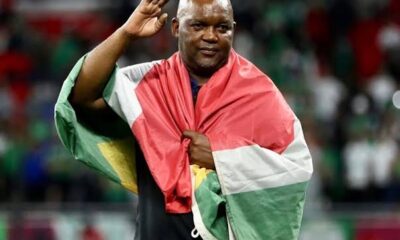

Domestic worker sues Pitso Mosimane, wife following debilitating injuries
Former Mamelodi Sundowns of South Africa and Al Ahli of Egypt coach, Pitso Mosimane, and his wife, Moira Tlhagale, have...
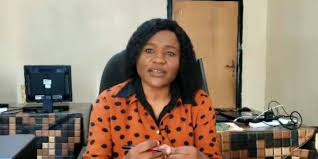

Media polarisation blamed for biased coverage, civil society leader calls for mindset shift
Chama Mwansa, Executive Director of the Chandarika Women and Youths Foundation, has attributed media biases to the similarities in coverage...


Nigeria: 118 prison inmates escape after rainstorm destroys facility
At least 118 inmates of the Medium Security Custodial Centre in Suleja, Niger State, in northern Nigeria, have reportedly escaped...


Tanzania’s auto-tech startup Spana is simplifying car maintenance— CEO
Tanzania’s auto-tech startup, Spana, has developed a mobile application for a bouquet of automobile services, enabling individual car owners and...


Nollywood thrown into mourning as another veteran actor Zulu Adigwe passes on
The Nigerian movie industry, popularly known as Nollywood, has once again been thrown into mourning with the death of veteran...


Zambian FA boss, Gen.Sec arrested over alleged laundering of K341,902
President of the Football Association of Zambia (FAZ), Andrew Kamanga, has been arrested along with the Secretary-General and two other...
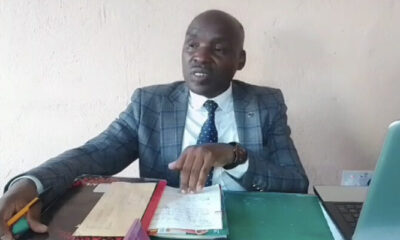

Luapula businessman, Munsanje, reflects on media freedoms and freedom of expression
As stakeholder engagement intensifies regarding the ongoing project to amplify voices on media freedom, freedom of expression, and digital rights,...
Trending
-
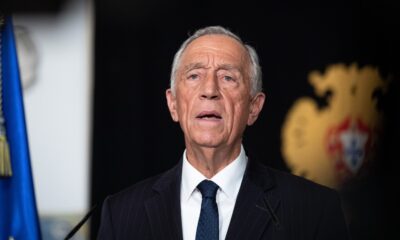
 Musings From Abroad2 days ago
Musings From Abroad2 days agoPresident de Sousa insists Portugal must ‘pay costs’ of slavery, colonial crimes
-

 Tech2 days ago
Tech2 days agoTanzania’s auto-tech startup Spana is simplifying car maintenance— CEO
-

 Culture2 days ago
Culture2 days agoNollywood thrown into mourning as another veteran actor Zulu Adigwe passes on
-
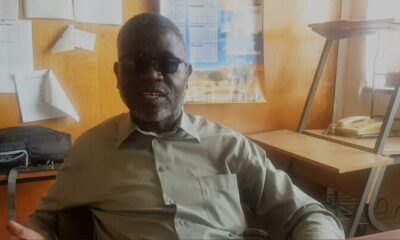
 Politics2 days ago
Politics2 days agoDigital Rights: Policy enthusiast, Jere, advocates self-regulation as alternative to govt regulations


